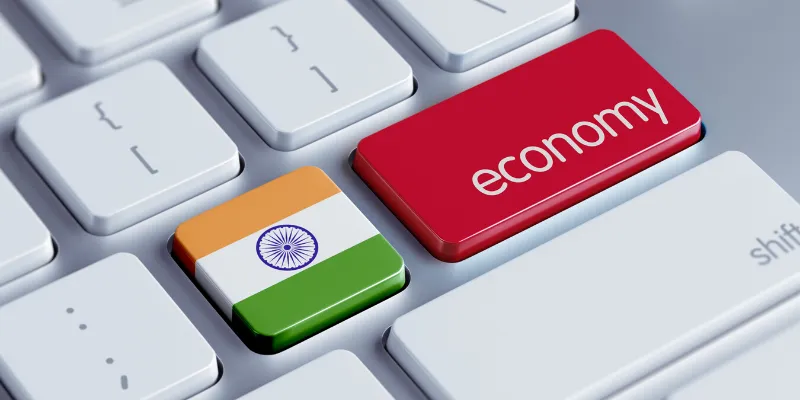Policy reforms that can propel India’s economy to a higher growth trajectory post COVID-19
The government’s intervention through key policy change initiatives to mitigate the debilitating impact of COVID-19 on the economy is the need of the hour.
‘The secret of crisis management is not good vs bad, it’s preventing the bad from getting worse’ - Andy Gilman
The rapid spread of the COVID-19 pandemic not only constitutes an existential threat to the lives of individuals but also threatens to throw the economic stability of the country into an unprecedented turmoil. In this crisis situation, the government of India’s intervention undertaking key policy change initiatives to mitigate the debilitating impact of the pandemic on the economy seems to be the need of the hour.

This article lays down certain steps that can be undertaken by the Indian government at the policy as well as the ground level in order to effectively manage and mitigate the impact of the pandemic.
1. Timely economic and policy interventions
Temporary exemptions from buyback and LTCG tax:
The government should provide much-needed relief to investors by temporarily exempting tax on share buybacks and long-term capital gains. At a time when the stock markets are bleeding, exemption from buyback tax will prompt more companies to announce buybacks and help provide floor to share prices. The removal of LTCG tax will raise stock market sentiments and boost the share prices of companies trading at an all-time low.
Addressing liquidity needs of MSMEs
To tide over the current crisis, MSMEs should be provided with requisite working capital through special government loan schemes or packages. It is understood that the government is currently working on a relief package to address delayed payments of MSMEs and to counter adverse impacts on it due to fallout of the coronavirus pandemic.
While the Reserve Bank of India (RBI) has recently introduced Long Term Repo Operations (LTRO) to help banks increase lending at cheaper interest rates, efforts must be undertaken to ensure that much-needed benefits are duly passed on to the MSME sector.
Tax relaxation to self-employed professionals
Taxpayers, especially self-employed professional and service companies, following the cash system of accounting should be allowed to claim a deduction for the relevant and various expenses in the financial year ending March 31, 2020 even if the payment is made in the financial year 2020-21.
Support to hospitality industry and FMCG sector
Hotel chains should be encouraged to convert their rooms into isolation wards for quarantine services through the provision of GST exemptions. This will help them with the requisite economic impetus at a time when business is suffering on account of decrease in footfalls and an increase in the fixed cost burden. In relation to this, the Rajasthan government has decided to reimburse state tax dues deposited by hotels and tour operators registered under Rajasthan Goods and Services Tax Act, 2017.
Also, since production and supply, especially of essential commodities has been impacted, the government should provide special tax and other benefits to the FMCG industry to resume production at full capacity levels. Benefits should also be provided to goods/service delivery companies engaged in the crucial task of delivering doorstep food and delivery services for the general public.
This will help in reducing scarcity and ensuring a normal supply of essential commodities in the post-lockdown phase.
2. Creation and leveraging of technology
Undertaking steps towards complete digitisation by market intermediaries
Physical documentation practices should be relaxed in the present circumstances and market intermediaries including mutual funds should digitise functions like KYC norms, subscription trading, and redemptions.
Use of technology in the justice delivery system
In order to ensure that justice delivery and other legal services in the country are not jeopardised, courts, tribunals, and alternative dispute resolution forums should function remotely through the online dispute resolution (ODR) mechanism. First step towards this was taken when the Supreme Court of India on April 6, 2020 issued directions to ensure smooth functioning of courts through videoconferencing during the nationwide lockdown because of the COVID-19 outbreak.
3. Other policy interventions
Waiver/suspension of office rentals
There is a strong need for lease/rental payments of commercial entities to be waived until the situation normalises and landlords may be considered to be compensated through tax benefits on their income for fiscal year 2020-21.
Maintaining pricing charts of essential goods
Further, priority focus should be on implementing schemes wherein taxes on essential commodities could either be foregone or reduced substantially. Also, with a view to effectively tackle the inflation situation in the post-lockdown period, rationing of essential goods, regulating roof and floor prices of commodities, ensuring regular supplies of products and scaling of imports should be undertaken to reduce the risk of skyrocketing of the consumer price and inflation index.
Towards this, Ministry of Home Affairs has urged the chief secretaries of the states to ensure the availability of essential goods by invoking the provisions of the Essential Commodities Act 1955 and to take measures which include fixing of stock limits, capping of prices, enhancing production etc.
Loan waivers
Business entities which do not terminate the services of their employees should be given loan waivers.
Edited by Javed Gaihlot
(Disclaimer: The views and opinions expressed in this article are those of the author and do not necessarily reflect the views of YourStory.)








